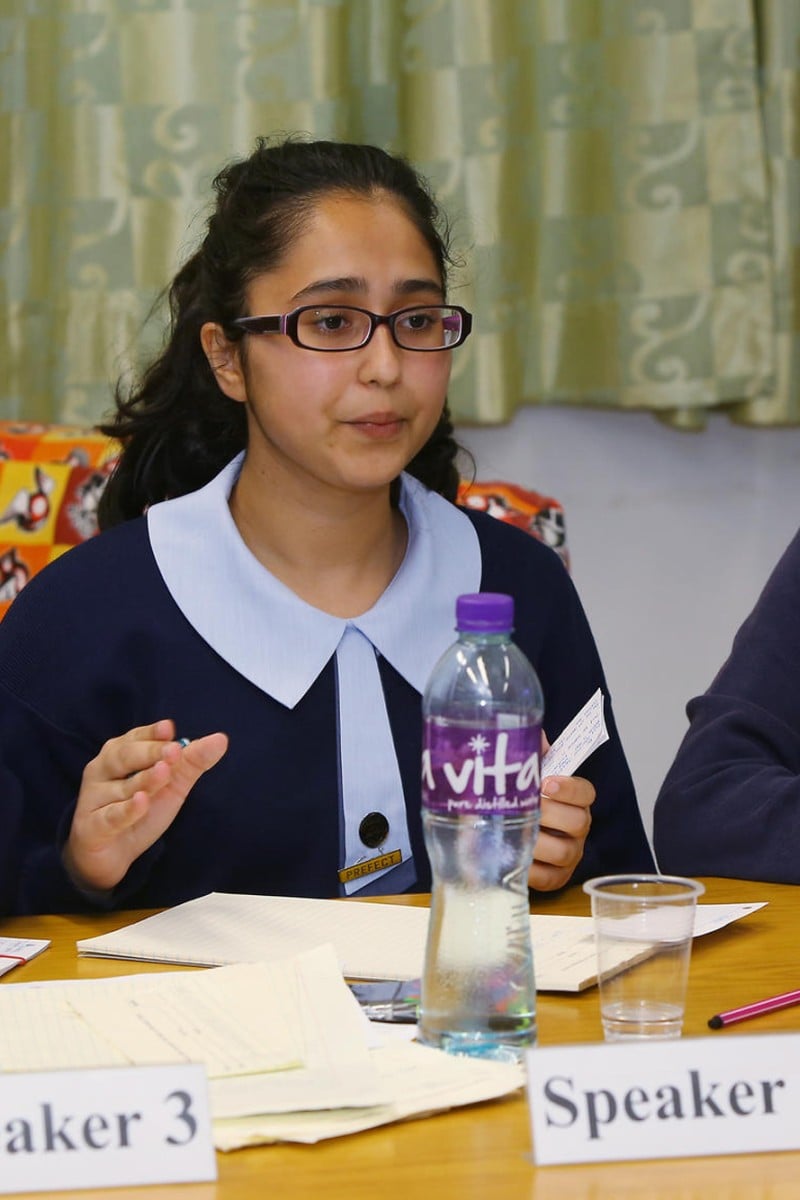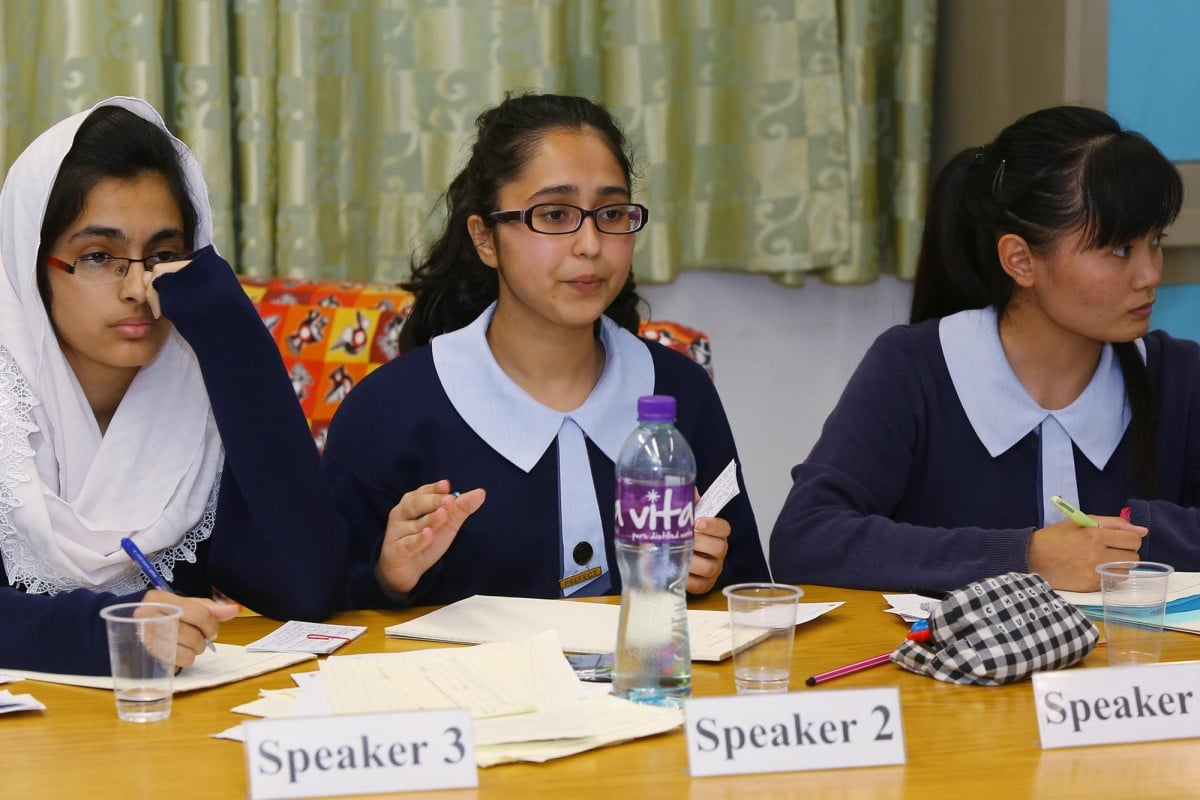
Debaters discuss whether Hongkongers are too dependent on their mobile devices
Seeing people glued to their phones is not unusual, but two teams debated whether Hongkongers are too attached to their devices
 Students from HKWMA Chu Shek Lun Secondary School (from left) Saffia Naz, Simrah Ali Awan and Katy Ho showed good teamwork.
Students from HKWMA Chu Shek Lun Secondary School (from left) Saffia Naz, Simrah Ali Awan and Katy Ho showed good teamwork.The head-down tribe, made up of people glued to their smartphones in public, has made headlines everywhere. More and more people are becoming victims of traffic accidents and other unfortunate incidents because they are paying too much attention to their phones.
People glued to their phones as they walk down the street is a common sight in Hong Kong. In round two of the Hong Kong Secondary School Debate Competition, HKWMA Chu Shek Lun Secondary School took on St Louis School and won. The teams debated the motion: "Hong Kong teenagers are too attached to electronic gadgets."
The Form Five students from Chu Shek Lun - Katy Ho, Simrah Ali Awan and Saffia Naz - agreed with the motion. The Form Four boys from St Louis - Ivan Chung Long-yung, Abiel Choi Hei-wang and Benny Leung Hung-kwan - were against it.
The debate was adjudicated by Johnny Leung, an English teacher and debating coach at Ning Po College.
The affirmative side started off by saying that nothing can separate people from their gadgets because they think it's cool and fashionable to use the devices.
The negative side disagreed. They said people don't just use the gadgets for fun; they use the devices to stay in touch with their friends and to learn. "In today's society, people need to use technology. The government has promoted e-learning in the past few years to encourage students to learn using electronic devices," said Abiel Choi, the second speaker from St Louis.
While this seems to be a reasonable argument, Leung thought that the negative side had missed out on a key point of the debate which is whether teenagers are too attached to their gadgets. "The argument is not whether using gadgets is a good or a bad thing. For the negative side to win the debate, they should prove that teenagers are using gadgets at the right place and at the right time in an appropriate manner," he said.
On the other hand, the affirmative side gave examples to show how teenagers are distracted from studying because they are too busy playing on their phones.
Leung also praised the affirmative side for having a strong team line - "nothing can separate teenagers from their gadgets". All three speakers repeated the team line in their speech.
It is common for debaters to quote figures and statistics to beef up their argument. Leung advised the two teams to provide details about their sources to make the argument more convincing. "When quoting numbers from the government, please mention the department and the date that the numbers were released instead of just saying according to statistics from the government," he said.
Saffia Naz, the third speaker from Chu Shek Lun, was named best speaker.
The debate was held last Thursday at HKWMA Chu Shek Lun Secondary School in Kowloon Bay.
